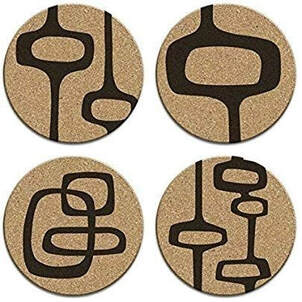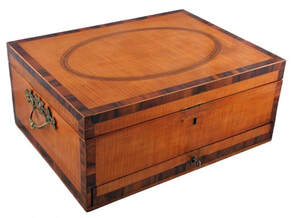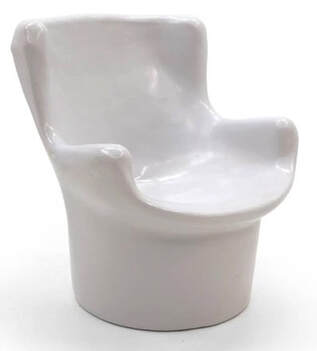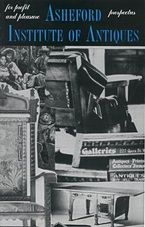 New York - To say that everyone is a little fatigued from the whole Covid nightmare is probably the understatement of the year. After months of lockdowns, openings, closings, reopening's, and everything else in between, most have just come to the conclusion that it's simply down to a waiting-game for a vaccine. However, even with the uncertainty this pandemic has brought over the last ten months, businesses have managed to go on; for worse (and surprisingly for some), for the better. During the pandemic's initial outbreak back in March of this year, staff writers contacted a number of antique and vintage vendors from across the nation to try and pin-down how they were feeling about their prospects for the upcoming year. While many of them were obviously tentative and filled with a certain degree of apprehension due to the nature of the pandemic, some had already pivoted their antique and vintage businesses to a different model by the beginning of May. This past week we returned to chat with many of these dealers to find out how their 2020 year was closing out...  Art Glass Art Glass Calvin Smith, a second generation antiques dealer on the upper east coast near the Maine border, told us in March that he'd seen a lot of nostalgia buying at the onset of the pandemic. "I think people were just settling in for the long-haul," said Smith when we spoke to him last. "I don't really think anyone truly believed it was going to go on this long." Smith says that while he ramped up his online sales in the early spring to prepare for the lack of in-store shopping, he was pleasantly surprised that by the time summer came, he was actually able to have foot-traffic within his premises. "I don't know whether or not people were fearful of another lockdown, and maybe not being able to get back out, but they just seemed to be a lot more serious this year about buying rather than browsing. We didn't sell a lot of furniture, but higher end carry-away items like art glass and objects d'art really sold well." Smith claims that although his foot-traffic was down by more than forty-percent, he still managed to recoup eighty-percent of his instore sales, and made up the difference with his online efforts of smaller more packable items. "I can't really complain," says Smith, "I'm probably going to be up by about ten-percent at years end, so I'm pretty happy with how the season turned out so far."  Mid-Century Modern Cork Drink Coasters Mid-Century Modern Cork Drink Coasters When we spoke to Harold White, a longtime dealer in Texas at the end of April, he and his daughter had just taken down the plywood coverings from the storefront windows and were reopening. White had battened everything up in March, but decided to open again once he saw that Covid numbers were relatively low in his area. "I probably wouldn't have done it without my daughter," said White, "but she convinced me that in addition to the shop, an online store might help fill in the gaps." White says that although there was a definite drop in foot-traffic, the new online venture did well. "I had old kitchen items from the 50's that had sat around for years, but as soon as they went on the Internet, they were gone in a day or two," said White. His daughter, who also took on the role of bookkeeper, says she thinks her father's business will be close to last year's numbers in terms of sales because of the new online presence. White says that while he's thankful to have pulled through the past few months with relatively good sales, he's also worried about future inventory. "They just don't have the in-person garage and estate sales like they used to," says White, "it's getting harder and harder to find reasonably priced items to resell"  Accent Pieces - Sewing Box Accent Pieces - Sewing Box Not everyone we spoke to though had the same experience. Tim Clark, a semi-retired dealer from Birmingham, Alabama who owns a small storefront with mixed hours, said that he gave it a try for the first couple of months, but ended up going to appointments only, and moved into full-time appraising as way to make up lost ground. "I just found that even though the restrictions were pretty light here, most folks just didn't seem to want to venture out too far, nor for too long." Clark says that while in the past he could often count on browser-types eventually settling on a piece, this year they were in-and-out without so much as a by your leave. "I think people were just scared to linger," he said, "and the one's who did buy were usually looking for small accent pieces they could carry home with them." One positive that Clark says did come about as a result of his 'appointment only' theme, was an increase in people wanting appraisals done. "I was able to arrange for drop-offs at the store, which allowed for far less direct contact with people, but it also saved me time and travel expenses." Overall, Clark says he'll likely break above even this year due in large part to his added appraisal services.  Modular 70's Plastic Chair Modular 70's Plastic Chair In states where restrictions were lifted early in the pandemic, many antique and vintage businesses reported early numbers that were in line with previous years. Janet Williams, who manages an old red-brick grainery converted into a large antique and vintage storefront in rural southern Georgia, said that although her initial concerns about working during the pandemic centered on crowd and vendor controls, the process actually worked out quite well once they had a procedure in place for letting people in. "When we capped the number of people entering the business at any one time, we actually found that overall sales went up." Williams attributes this to the fact that people were more serious about buying, and weren't just congregating there on the weekends looking for something to do. "It was definitely smaller stuff that was selling; things that didn't have to be delivered." According to Williams, sales covered the spectrum from mid-century chairs and artwork to seventies style modular pieces and rounded chrome lighting. "It was truly a little bit of everything." Williams thinks that people came with a purpose, instead of a 'browsers' mindset, which she believes is what accounts for the surprising uptick in sales. "In March I was considering retiring, and yet by the end of December, we might end up actually being ahead of last years sales... it's really kind of hard to fathom," say Williams. For many of the other dealers we spoke with, 'digital' Antique Shows became the norm very quickly as the pandemic progressed, as did online auctions. By one account, the number of new dealers using their own auction software, or participating in collaborative online auction venues rose by a staggering 700%. Most dealers acknowledged that the move to digital representation in one form or another was the biggest reason for survival, and in many cases, continued growth within the industry. Robert Foley, a dealer from New York whom we spoke with in April, perhaps summed it up best when he explained that his first foray into online sales had just occurred in January, prior to the pandemic. "Today," he said, "I'm conducting and overseeing around four online auctions a week - I know it sounds crazy, but this may turn out to be one of my best years ever!" A crazy year indeed. - A.I.A. Staff Writers  NOTE: For readers seeking more information about the Asheford Institute Of Antiques distance-learning program on professional-level appraising, the study of antiques, collectibles, vintage and mid-century modern items, please click here to visit the school's Home Page. Should you have additional questions about the Asheford program, you can also write to the school at: [email protected] or call the Registrar's Office toll-free at: 1-877-444-4508. |
AIA StaffWe're providing our students and reader's with the latest breaking news on events and happenings that we think might be of interest to both collectors and dealers alike. Including changes within the world of antiques, vintage, collectibles and appraising that might just have an effect on your bottom line. We're also interested in hearing from you - so if you've got a great newsworthy story, let us know, and you just might find it here! Archives
July 2024
CategoriesLegal Disclaimer: Extraneous opinions, statements and comments made by individuals represented within these posts do not necessarily reflect those of the Institute. The publication naming of specific business entities, organizations, and concerns, contained herein, in no way represents an endorsement or recommendation of services or products by the Institute. Publicly identifiable information contained herein (including, but not limited to contact information), has been intentionally limited where possible, due to privacy and legal concerns related to the digital dissemination of information through online means. All views expressed herein are those of their respective owners. The Institute is in no way responsible, financially or otherwise, for the accuracy or validity of statements contained within published posts from sources that originate and appear outside of the written and expressed views of those submitted by the Institute.
|

 RSS Feed
RSS Feed




